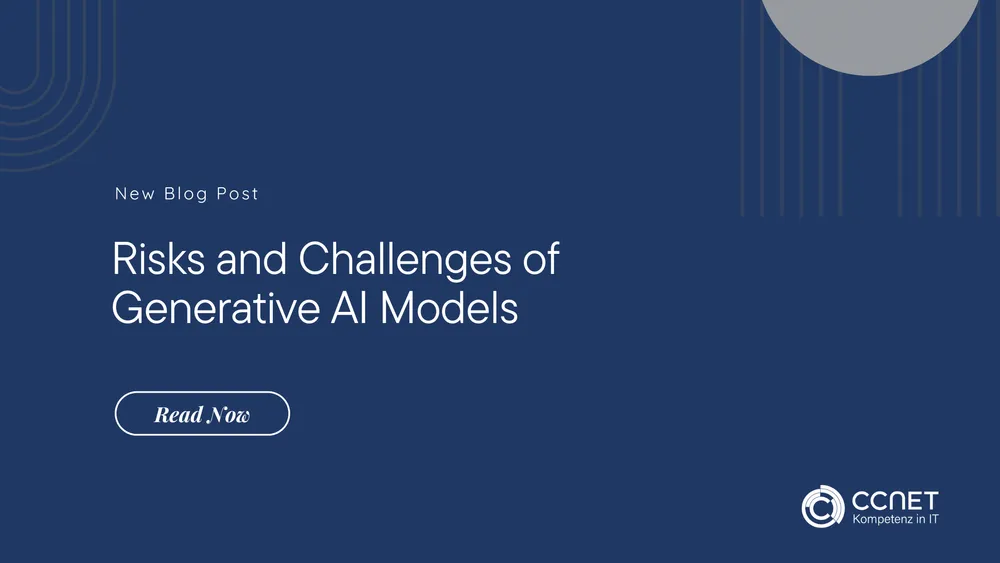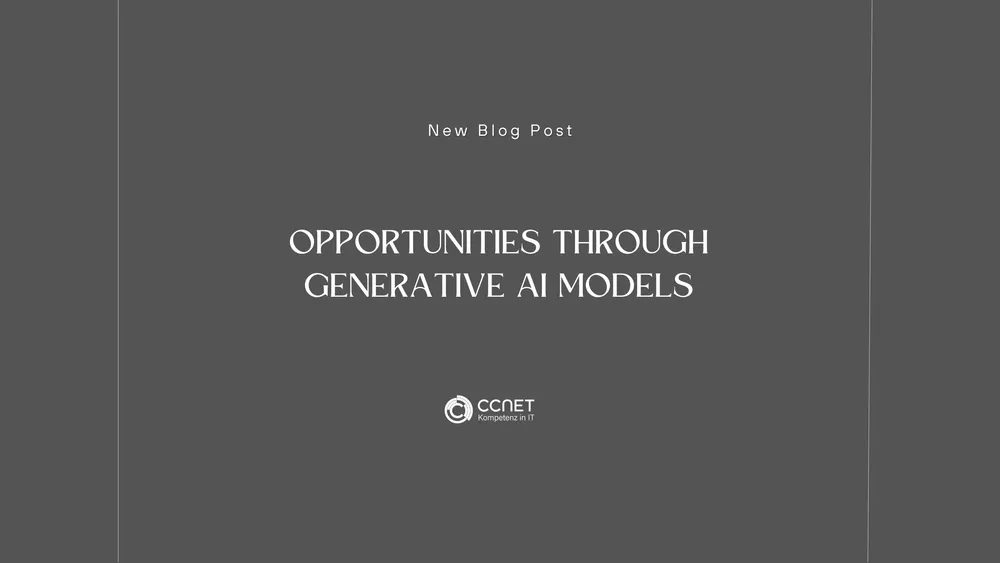
CCNet
May 31, 2024 • 3 min read

The Future of Generative AI Models
Technological development in the field of generative AI is advancing at a rapid pace. The capabilities offered by these models are continually expanding, opening up new application areas. At the same time, there are ethical and regulatory challenges associated with the advancement of this technology. In this blog post, we will take a look at the future developments of generative https://www.ccnet.de/en/solutions/ai-solutions/ai-consulting/ and the associated aspects. We will not only consider technological advancements but also the social and economic impacts they may bring. It is important to examine these developments from various perspectives to gain a comprehensive understanding of their potential implications.
Technological Advancement and Its Potential Impacts
Generative AI models are evolving and becoming increasingly powerful. New architectures and methods allow these models to generate more complex content of higher quality. As a result, they are being used in more and more industries, from IT security to the entertainment industry. Future developments could lead to even more precise models capable of handling a wider range of tasks.
Technological advancements can also have implications for IT security and risk management. While some risks may be mitigated, new threats could emerge. Organizations need to be prepared to adapt to the changing landscape of generative AI and continuously improve their security measures. It is crucial for them to remain flexible and develop agile strategies to meet the challenges posed by evolving technology.
Ethical Considerations and Regulatory Aspects
The increasing prevalence of generative AI models raises ethical questions. These models can generate content that is problematic or inappropriate. Moreover, the use of generative AI can jeopardize privacy and data protection. Therefore, the further development of the technology requires clear ethical guidelines and effective regulation to prevent misuse.
Regulatory bodies are working on guidelines to ensure that generative AI is used responsibly. This includes measures to ensure transparency, accountability, and security. Future regulations could impose strict requirements on the development and use of generative AI models to uphold ethical standards.
What to Expect from Future Research
Research in the field of generative AI will intensify in the future. New approaches and methods will be developed to enhance the performance of these models and expand their applications. Future research could focus on developing models that are more robust against attacks and biases.
Another focus of research will be on improving the explainability and transparency of generative AI models. This is crucial for gaining user trust and ensuring security. Additionally, new data protection policies and ethical standards could be developed to promote the responsible use of these technologies.
Conclusion
The future of generative AI models is promising, but it also presents challenges. The further development of the technology will create new opportunities, but ethical and regulatory issues must be taken into account. Future research will be crucial to ensure that generative AI is used in a manner that is both safe and responsible. Companies and organizations should be prepared to adapt to these developments and take appropriate measures to minimize risks and maximize opportunities.
Further information can be found here: generative ai models
FAQs about generative AI models
What technological developments can be expected in generative AI in the future?
Generative AI models will become more powerful, more versatile, and capable of generating complex content in high quality—with applications in a wide range of industries.
What impact will generative AI models have on IT security?
They can enable new security solutions, but also create new threats, which is why organizations need to continuously adapt their protective measures.
What ethical challenges does generative AI pose?
There is a risk that inappropriate content will be generated or privacy rights violated, which necessitates clear ethical guidelines.
What role does regulation play in generative AI?
Future regulations should ensure transparency, security, and accountability in order to prevent misuse and secure standards.
What topics will research focus on in the future?
The focus will be on improving the performance, robustness, transparency, and explainability of the models, as well as developing new ethical and data protection standards.
What should companies keep in mind when dealing with generative AI?
They must remain flexible, identify risks early on, and develop appropriate strategies for the safe and responsible use of the technology.


